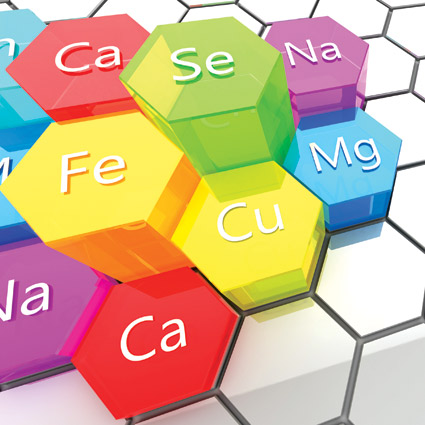
By Jonathan Evans
Herbal Information Specialist for the Herbarium
This is something I should have done years ago, but it did not become glaringly apparent until recently that many people have no idea why they need to take a mineral supplement.
More to the point, many people do not know what minerals are.
On the Herbarium’s “Getting Started” information sheet, which my wife created decades ago for her clients, we list a vitamin supplement and a mineral supplement as separate items. To us it was obvious; not so, apparently, to the general public.
In a short version, let me give some basic information on the subject of minerals and health.
Why minerals matter
“Minerals serve a life sustaining function by helping the body to operate properly and remain strong. Minerals build skeletal and soft tissues, as well as regulate processes such as heartbeat, normal blood clotting nerve reaction, oxygen support enzyme and hormone systems” to name a few of their actions (Whole Foods Magazine, Dec 2017).
A chelated (pronounced key-lated) mineral is bound to special carriers like amino acids which help transport minerals across the intestinal lining into the body.
Some key players
Below is a list of some of the well-recognized minerals, and their functions within the body:
Calcium. Most people know calcium. It is the most abundant mineral in the body, found primarily in the teeth and bones. We have a very calcium rich diet plus many foods that are fortified with extra calcium.
Magnesium. It is called the “forgotten mineral” because it is – forgotten. Without sufficient magnesium, you cannot absorb calcium. Magnesium is essential for carbohydrate and protein metabolism, cell reproduction, heart muscle tone, and energy production and over 300 other bodily processes.
Boron. This mineral aids in the body’s ability to use calcium, magnesium and vitamin D. It also assists in normal brain function.
Copper. This mineral aids in iron absorption and plays an important role in the formation of red blood cells, and helps produce elastin and collagen to aid wound healing.
Manganese. It helps produce enzymes needed for fat and protein metabolism, stimulates growth of connective tissue, nerve and brain function.
Chromium. This is an essential nutrient for normal fat and sugar metabolism, growth and immune function, and activates enzymes that drive numerous essential chemical reactions in the body.
Zinc. This mineral is vital for many biological functions including immune resistance, digestion, blood sugar/ insulin control, taste and smell.
Iron. It acts with protein and copper to produce hemoglobin, supports energy production and cognitive development.
Potassium. This mineral plays a major role in fluid and electrolyte balance, heart muscle activity, carbohydrate metabolism and protein synthesis.
This list and the function of the minerals is in no way a complete list of important minerals or their action on the body. Free literature on minerals and health is available at the Herbarium.
Food alone can’t fill the bill
As well as people think they are eating a good and balanced diet, you simply cannot get enough minerals from just food. The land has been exhausted for many decades due to improper rotation or no rotation of crops at all, the heavy use of fertilizers, and myriad other factors. This information has been known since the late 1920s, even being published in the Congressional Record. Sure you can grow an eight- pound tomato, but its nutrient value is very poor. Organic farming is one step in the right direction, but there are not enough farmers producing enough food for all of our nutritional needs.
If your diet or Centrum vitamin were enough, we would not have this problem. But we do.
That is why we rely on supplements to fill the void in our diets.
In coming articles I will try explaining vitamins.
CBD – Or why you shouldn’t try to improve on Mother Nature
A story appeared in the April 18 edition of the daily paper reporting on a British pharmaceutical company drug made from Cannabis to treat seizures in children. Epidiolex is a pharmaceutical grade version of cannabidiol, or CBD, which some parents have been using for years to successfully treat their children’s epilepsy. Epidiolex is estimated to cost $25,000 per year. Commercial CBD from reputable companies is a fraction of that cost.
“Experts” feel an FDA approved drug would be better and safer than what is available today.
One big problem is the super CBD causes side effects such as diarrhea, vomiting, fatigue and sleep problems. Regularly occurring CBD is used to treat ... wait for it … diarrhea, vomiting, sleep disorders and a host of other problems. The irony is not lost on many when you consider it is the FDA that has kept research on the use of cannabis strictly controlled, and researchers are not even sure why CBD works on the seizures. If they looked at the research already available, they would know humans have cannabinoid receptors in the brain, nervous system, and digestive system, In essence, we are designed to accept cannabis compounds.
— Jonathan
Send questions on botanical remedies to: Natures Rx: Jonathan Evans at herbarium258@gmail.com, or by regular mail to: The Herbarium, 264 Exchange St., Chicopee, MA. 01013. If requesting additional info, include a self-addressed stamped envelope.